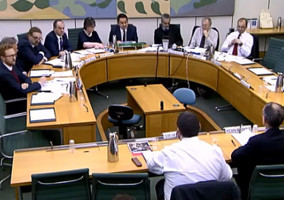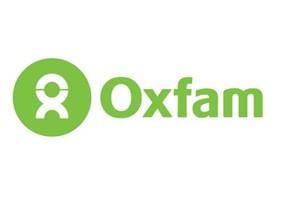Charities that are worried that they might not have dealt with a safeguarding incident properly in the past should come forward now, the Charity Commission’s director of investigations told international development charities yesterday.
Michelle Russell, director of investigations, monitoring and enforcement at the Charity Commission, told delegates at Bond’s annual conference that the last thing the regulator wants to do is “give a message to people that are trying to feel brave about coming forwards to be scared by the words accountability and transparency”.
She was speaking on a panel on a session about safeguarding and governance at the umbrella body for international aid charities' event.
Russell told delegates in the panel session that now is the time to speak up if they are aware of any wrong-doing in their charity, or if there are things it feels haven’t been dealt with correctly.
She said: “There is a moment in time now where if you are sitting there thinking I’m not sure we’ve dealt with something the way in which we dealt with it, now is the time to come forward and report it to us. Rather than this time next year. So if you are sitting there a bit worried, do it now.”
She also said: “The other thing is that transparency doesn’t mean that absolutely doesn’t mean that everything gets published. I think there is an honest conversation about how many incidents, that these things happen, and that they are dealt with properly and responsibly and the outcomes is handled well.”
The session was put on partly as a response to issues with safeguarding that have been highlighted in the media.
However, Russell told delegates that the Commission does feel that there has been an under-reporting of concerns in the past, and that “safeguarding should be a priority for all charities, not just for those working with those groups traditionally considered to be at risk. It is such an important subject”.
‘Struck by how un-empathetic we are’
Sarabajaya Kumar, who holds a senior teaching fellowship in Voluntary Sector Policy at UCL, and was also speaking on the panel. In response to a conversation about how important it is for trustees and chairs to listen to their beneficiaries, Kumar said listening does not go far enough and said that the sector needs to be more empathetic in order to avoid issues such as the safeguarding concerns that have arisen in recent weeks.
She said: “Listening is critical but so is empathy. I’m absolutely struck by how un-empathetic we are and I would challenge you on this in the sector. There is an assumption that we are empathetic but we need to be much better listeners to all our stakeholders and be much more empathetic.”
At a ‘cross-roads’
Diarmuid O’Neill, senior policy adviser for civil society at the Department for International Development and a Clore Social Leadership Fellow, who was previously a chief executive of an international development charity, said that the sector is at a “cross-roads” as a result of these safeguarding issues that have arisen.
He said: “I think it is an incredibly important cross-roads and we have the potential, if we are brave and if we are bold and if we are courageous, we can use this awful series of incidents to really bed in change in the sector.”
O’Neill said that governance is key in everything the sector does going forwards, and told delegates to consider putting beneficiaries in their board meetings, or even invite trustees of other charities in to board meetings.
He also told charities to consider “putting directors of safeguarding at the top of your organisation, the way you have a director of finance”, saying that this would increase the centrality of beneficiaries.
O’Neill also said that the DfID had to have a rethink about how it funds organisations in response to safeguarding issues, and the added pressure it is putting on charities.
He said: “I think everything has got to change, including the way we fund organisations. We are having conversations about that internally because if we are asking organisations to do safeguarding as additional work then how serious are we about that? So that is a question internally.”
Have an ‘honest conversation with your donors’
Michelle Williams also told delegates that charities need to have an “honest conversation with their donors, including the public, about what it costs to properly run a charity”.
She said: “I think there has been an indication that people are afraid that any of their money is going to be spent on overheads, so actually what we have seen is charities trying to disguise or say that the best charity is one with the lowest overheads.”
“I think there is an honest conversation to be had there and we would say to be compliant and be well run, which is probably what your donors want, and that costs money, and a proportion of that money to be properly spent on those compliance systems. This takes me on to GDPR. GDPR to be done properly costs a lot of extra costs attached to it, and I think there is a second honest conversation to be had there.”
|
Related articles












